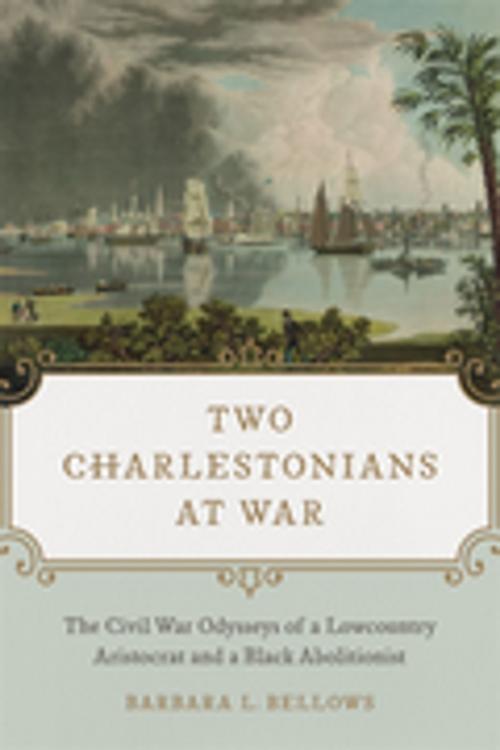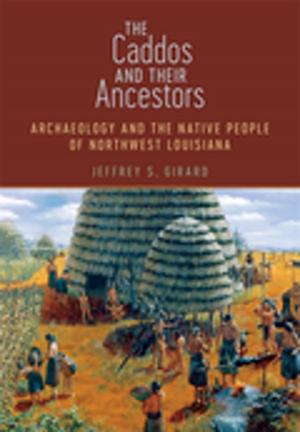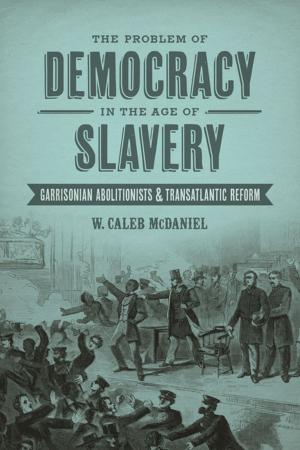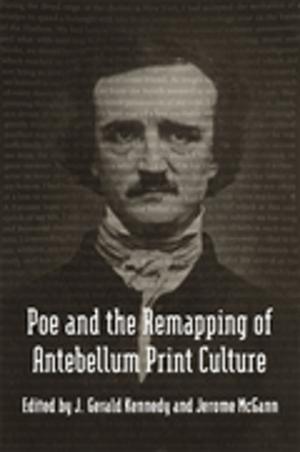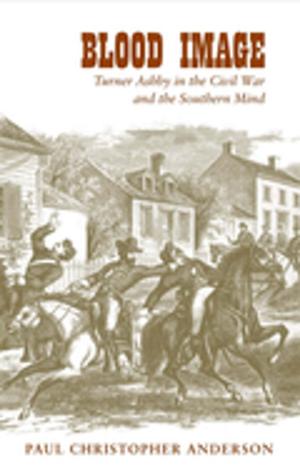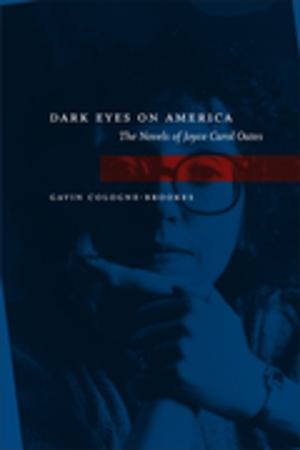Two Charlestonians at War
The Civil War Odysseys of a Lowcountry Aristocrat and a Black Abolitionist
Nonfiction, Social & Cultural Studies, Social Science, Cultural Studies, African-American Studies, History, Americas, United States, Civil War Period (1850-1877)| Author: | Barbara L. Bellows | ISBN: | 9780807169117 |
| Publisher: | LSU Press | Publication: | February 21, 2018 |
| Imprint: | LSU Press | Language: | English |
| Author: | Barbara L. Bellows |
| ISBN: | 9780807169117 |
| Publisher: | LSU Press |
| Publication: | February 21, 2018 |
| Imprint: | LSU Press |
| Language: | English |
Tracing the intersecting lives of a Confederate plantation owner and a free black Union soldier, Barbara L. Bellows’ Two Charlestonians at War offers a poignant allegory of the fraught, interdependent relationship between wartime enemies in the Civil War South. Through the eyes of these very different soldiers, Bellows brings a remarkable, new perspective to the oft-told saga of the Civil War.
Recounted in alternating chapters, the lives of Charleston natives born a mile a part, Captain Thomas Pinckney and Sergeant Joseph Humphries Barquet, illuminate one another’s motives for joining the war as well as the experiences that shaped their worldviews. Pinckney, a rice planter and scion of one of America’s founding families, joined the Confederacy in hope of reclaiming an idealized agrarian past; and Barquet, a free man of color and brick mason, fought with the Union to claim his rights as an American citizen. Their circumstances set the two men on seemingly divergent paths that nonetheless crossed on the embattled coast of South Carolina.
Born free in 1823, Barquet grew up among Charleston’s tight-knit community of the “colored elite.” During his twenties, he joined the northward exodus of free blacks leaving the city and began his nomadic career as a tireless campaigner for black rights and abolition. In 1863, at age forty, he enlisted in the 54th Massachusetts Volunteer Infantry—the renowned “Glory” regiment of northern black men. His varied challenges and struggles, including his later frustrated attempts to play a role in postwar Republican politics in Illinois, provide a panoramic view of the free black experience in nineteenth-century America.
In contrast to the questing Barquet, Thomas Pinckney remained deeply connected to the rice fields and maritime forests of South Carolina. He greeted the arrival of war by establishing a home guard to protect his family’s Santee River plantations that would later integrate into the 4th South Carolina Cavalry. After the war, Pinckney distanced himself from the racist violence of Reconstruction politics and focused on the daunting task of restoring his ruined plantations with newly freed laborers.
The two Charlestonians’ chance encounter on Morris Island, where in 1864 Sergeant Barquet stood guard over the captured Captain Pinckney, inspired Bellows’ compelling narrative. Her extensive research adds rich detail to our knowledge of the dynamics between whites and free blacks during this tumultuous era. Two Charlestonians at War gives readers an intimate depiction of the ideological distance that might separate American citizens even as their shared history unites them.
Tracing the intersecting lives of a Confederate plantation owner and a free black Union soldier, Barbara L. Bellows’ Two Charlestonians at War offers a poignant allegory of the fraught, interdependent relationship between wartime enemies in the Civil War South. Through the eyes of these very different soldiers, Bellows brings a remarkable, new perspective to the oft-told saga of the Civil War.
Recounted in alternating chapters, the lives of Charleston natives born a mile a part, Captain Thomas Pinckney and Sergeant Joseph Humphries Barquet, illuminate one another’s motives for joining the war as well as the experiences that shaped their worldviews. Pinckney, a rice planter and scion of one of America’s founding families, joined the Confederacy in hope of reclaiming an idealized agrarian past; and Barquet, a free man of color and brick mason, fought with the Union to claim his rights as an American citizen. Their circumstances set the two men on seemingly divergent paths that nonetheless crossed on the embattled coast of South Carolina.
Born free in 1823, Barquet grew up among Charleston’s tight-knit community of the “colored elite.” During his twenties, he joined the northward exodus of free blacks leaving the city and began his nomadic career as a tireless campaigner for black rights and abolition. In 1863, at age forty, he enlisted in the 54th Massachusetts Volunteer Infantry—the renowned “Glory” regiment of northern black men. His varied challenges and struggles, including his later frustrated attempts to play a role in postwar Republican politics in Illinois, provide a panoramic view of the free black experience in nineteenth-century America.
In contrast to the questing Barquet, Thomas Pinckney remained deeply connected to the rice fields and maritime forests of South Carolina. He greeted the arrival of war by establishing a home guard to protect his family’s Santee River plantations that would later integrate into the 4th South Carolina Cavalry. After the war, Pinckney distanced himself from the racist violence of Reconstruction politics and focused on the daunting task of restoring his ruined plantations with newly freed laborers.
The two Charlestonians’ chance encounter on Morris Island, where in 1864 Sergeant Barquet stood guard over the captured Captain Pinckney, inspired Bellows’ compelling narrative. Her extensive research adds rich detail to our knowledge of the dynamics between whites and free blacks during this tumultuous era. Two Charlestonians at War gives readers an intimate depiction of the ideological distance that might separate American citizens even as their shared history unites them.
